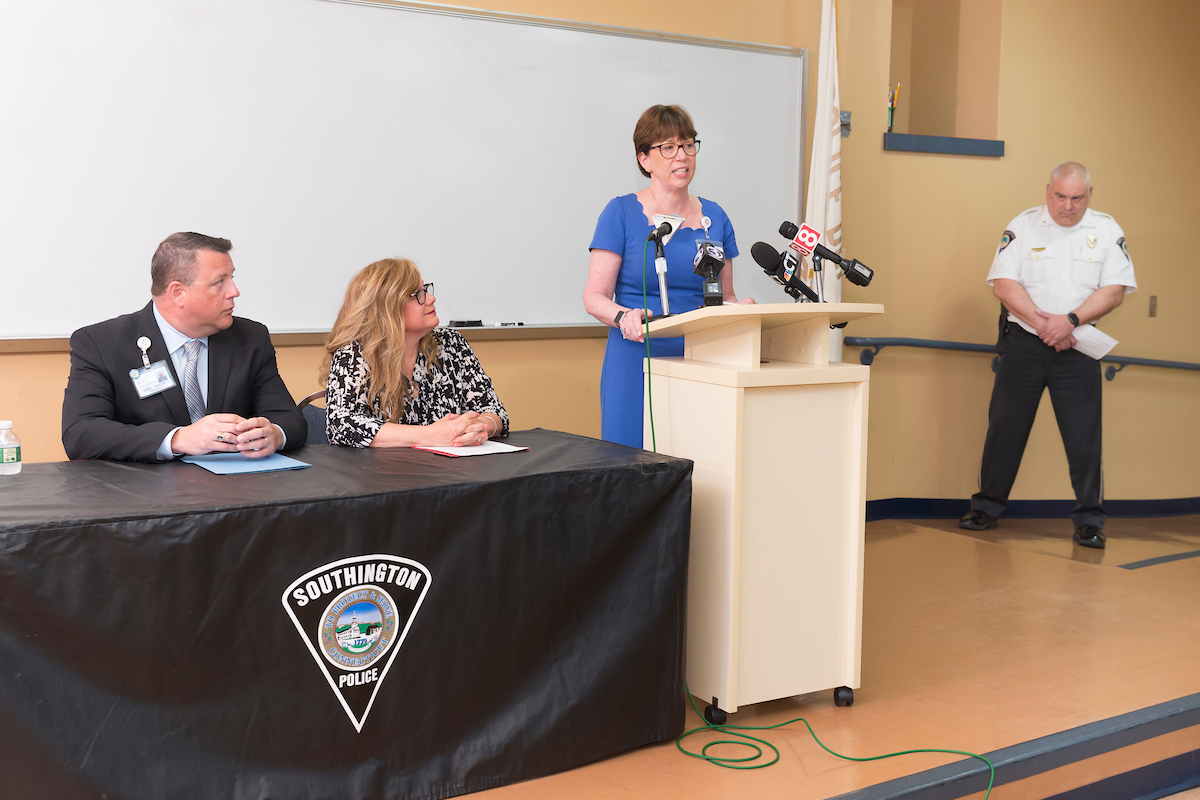Michael Gagnon was a typical teenager at Southington High School. Passionate about football, he had a bright future as a nose guard with the Blue Knights varsity team.
After being caught with a small amount of marijuana at school, Michael was expelled before he had a chance to play on the team. His mother, Christine Gagnon, says this was the catalyst for a downward spiral of clinical depression and drug addiction that ultimately led to Michael’s death by opioid overdose.
A turning point for the family came in April of 2017.
“Mike was in a bad way and for the first time he asked for help,” she said at a May 20 press conference announcing a new partnership that could have helped someone like Mike.
His family took him to a hospital, only to be sent home without a plan for recovery. The next two months brought a renewed commitment to sobriety, but on July 17 Michael’s life ended with a deadly dose of fentanyl.
Michael’s story is one that plays out too often across Connecticut, according to local officials who gathered at the Southington Police Department to announce the H.O.P.E. (Heroin/Opioid Prevention & Education) Initiative.
The program is designed to assist people at the moment they come into contact with law enforcement and first responders.
In a collaboration between the Hartford HealthCare Behavioral Health Network,The Hospital of Central Connecticut,MidState Medical Center, the state’s attorney’s office and an array of community partners, the program offers treatment options as an alternative to arrest.
“We are committed to working closely with the town of Southington to improve the health of the community, and to bring people the right care at the right place at the right time,” said Gary Havican, president of The Hospital of Central Connecticut and MidState Medical Center.
The town of Southington is the latest to join in the effort to combat the opioid epidemic in local communities.
“The program is a discretionary alternative to arresting a person living with addiction and also provides treatment information for family members and loved ones,” said William Palmieri, Deputy Chief of the Southington Police Department. Since New Britain, Berlin and Newington launched the H.O.P.E. program in November, 44 individuals have been introduced to the program.
“We have recovery coaches in all of our emergency rooms across the state,” said Pat Rehmer, president of Hartford HealthCare Behavioral Health Network. “These recovery coaches see people who are either seeking treatment or come in after an overdose and speak to them about getting treatment at that moment when they are ready. This has been enormously successful.”
“The H.O.P.E. Initiative provides a recovery coach, induction of medication and access to treatment within 24 hours,” said Jessica Collins, BSN, RN-BC, LPC, Director of Behavioral Health at The Hospital of Central Connecticut and MidState Medical Center. “For a patient who has experienced police involvement and they have gone the judicial route, the H.O.P.E. program can connect them to the right level of care.”
Christine Gagnon thinks the H.O.P.E. initiative may have made a difference for Michael.
“The Hope Initiative with the collaboration of the Southington Police Department and Hartford HealthCare will be a vital tool to saving lives,” she says. “I believe this initiative would have resulted in a different outcome for my family.”
As an activist, Christine knows that there is a lot of work to be done to spare more families the grief she endures every day.
“I am so proud of my town and the work that is being done in awareness, prevention and support to help curb this national health epidemic,” she said.

